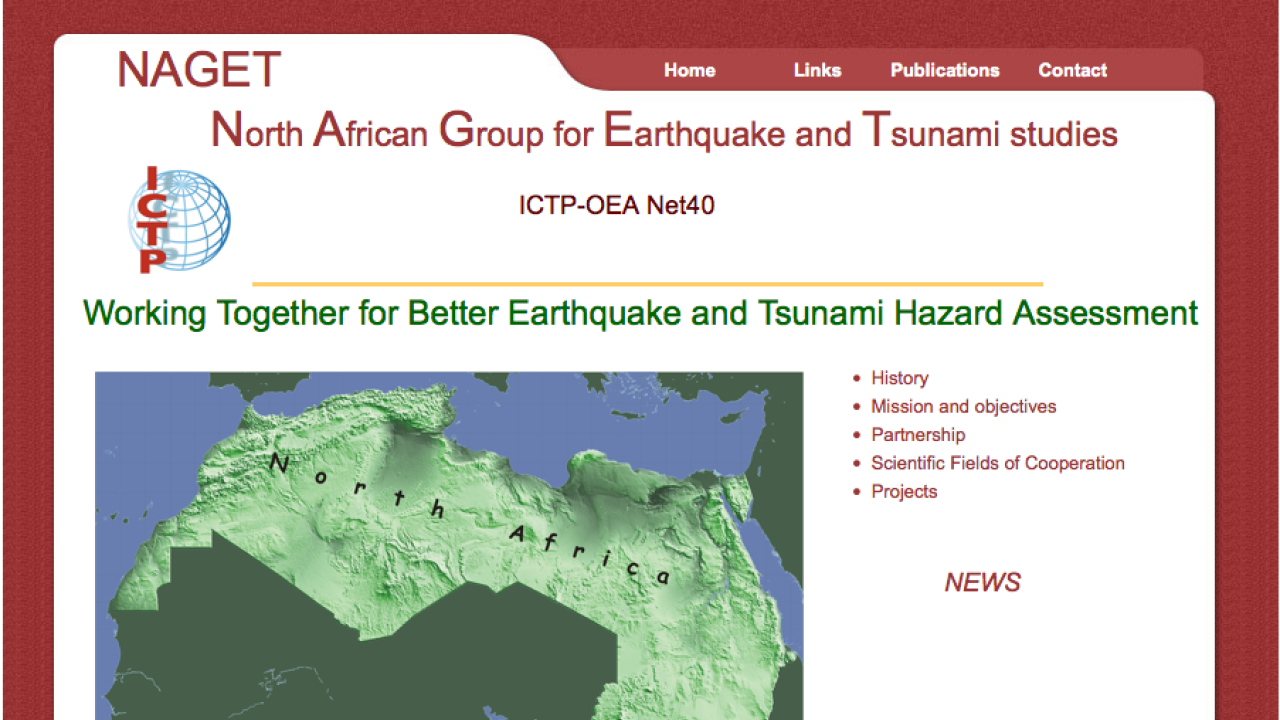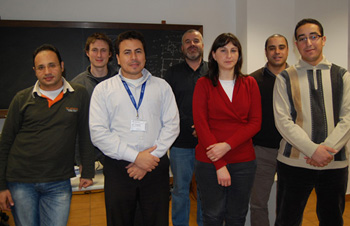
Amar Bellik, a young Algerian scientist who will start his PhD studies next year, investigates space geodesy and crustal deformation, fields in which experts in his home country are rare. Indeed, much of his knowledge on the subject has been gleaned from journal articles. So when ICTP invited him and several other North African scientists to Trieste for a month-long, intensive, multi-disciplinary course on earthquake and tsunami hazard assessment and mitigation, he eagerly accepted.
The young scientists are here thanks to an initiative between ICTP and the North Africa Group for Earthquake and Tsunami Studies (NAGET), which was founded by ICTP in 2000. ICTP earthquake researcher Karim Aoudia and NAGET coordinator Assia Harbi chose what Aoudia described as "rising stars" to enrich their studies and encourage their interest in fields that are of grave importance to a region at high risk for earthquakes and tsunamis. "The major cities in northern Africa are built on an active fault system that has a strong potential for a magnitude 7.5 earthquake, even stronger than the one that struck Haiti in 2010," says Aoudia.
At ICTP, Bellik and his fellow visitors are enjoying the best of what ICTP has to offer: access to first-rate research facilities and expert scientists, as well as the opportunity to network with researchers from around the world.
For the North African visitors--some of who have never before ventured outside of their home countries and all of whom have never before met--these qualities make a strong impression. Mohamed Ezz Elarab, a PhD student from Egypt studying the mitigation of tsunami hazards, noted, "There is a very good library here where we can find all references. And having access to ICTP's researchers increases our knowledge and experience, which we can then transfer to our own countries." Ezz Elarab hopes that his studies will contribute to the establishment of an early-warning system for tsunamis along the North African coast.
Mahmoud El-Hadidi, an Egyptian who recently defended his PhD, echoed these sentiments, adding, "ICTP's environment helps researchers focus on their work and nothing else." He hopes to spend more time at ICTP in the future to augment his work on upgrading seismic inputs in North Africa.
 |
| ICTP scientist Karim Aoudia (back row, centre) with North
African students and ICTP postdoctoral researchers. |
Younes El Fellah, a Moroccan PhD student researching ambient noise tomography, also appreciates the easy access to ICTP's in-house scientific expertise, saying, "The university I attend in Morocco has little research on my chosen topic, so finding a scientist there to ask advice of is difficult."
Aoudia says the visits by young North African scientists (which are partially funded by TWAS) helps to strengthen NAGET's broad and interdisciplinary network and will continue.
















